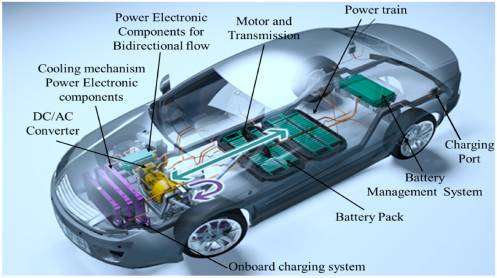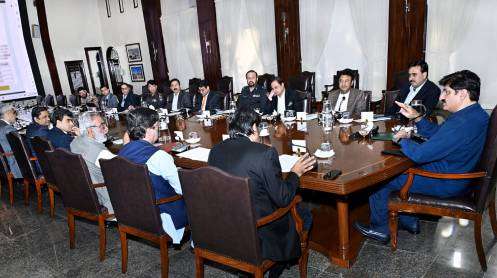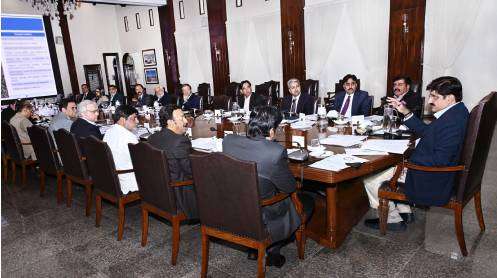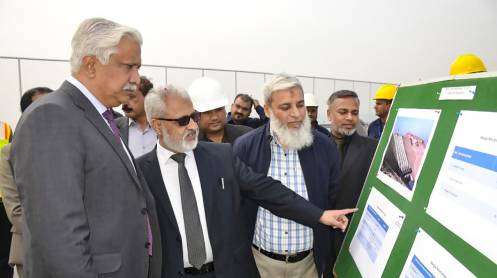KARACHI: Industry leaders and policy experts have urged a pragmatic, phased approach to implementing Pakistan’s New Electric Vehicle Policy (NEVP) 2025–30, saying that ambitious targets for EV adoption can only be met through strong infrastructure, local manufacturing, and a cleaner energy mix.
Speaking at the event “Shifting Gears: Launch of Automotive Study and Stakeholders Dialogue” — organised by Indus Consortium in Karachi — participants highlighted major obstacles, including limited charging infrastructure, high upfront costs, and the national grid’s heavy reliance on fossil fuels.
Pakistan currently operates only 35 public charging stations, far behind regional counterparts such as India and Nepal, while 60% of the country’s power generation still depends on fossil fuels. Experts warned that without greening the grid, the EV shift would merely transfer emissions rather than reduce them.
The event also saw the launch of a joint research study, “Green Transition — Barriers and Opportunities for the Automotive Industry in Pakistan,” by Indus Consortium and the Federation of Pakistan Chambers of Commerce and Industry (FPCCI). The report identified key structural challenges but also noted growing opportunities for localisation, green financing, and technology partnerships.
IMC CEO Ali Asghar Jamali said hybrid and plug-in hybrid vehicles (PHEVs) should be recognised as part of the broader green mobility transition. “With most of our electricity still coming from fossil fuels, moving entirely to EVs may not yield immediate environmental gains,” he noted.
Indus Consortium CEO Hussain Jarwar said the NEVP could replicate the success of Pakistan’s solar adoption drive if infrastructure and financing gaps are addressed. Meanwhile, former PAAPAM chairman Aamir Allawala stressed the need for localisation and raised concerns over future battery waste management.
FPCCI representative Muhammad Armughan highlighted the study’s focus on Scope 3 emissions in the IMC supply chain and called for targeted incentives, technology transfer, and green financing to support the transition.
Participants collectively called for consistent policy implementation, expanded EV charging networks, and financial support mechanisms to promote both EV and hybrid vehicle uptake.
BYD’s Growing Footprint in Pakistan
According to Topline Securities, citing discussions with HUBCO management, Chinese automaker BYD has received a stronger-than-expected market response, emerging as Pakistan’s leading EV brand.
Local assembly of BYD vehicles is expected to commence by mid-2026, covering a range of small cars and SUVs tailored for consumers with private charging access. The company is also developing Pakistan’s first nationwide EV charging corridor along the Karachi–Peshawar Motorway to support long-distance EV travel.
BYD’s management indicated that future exports to right-hand drive markets are under consideration, while current efforts remain focused on establishing the local plant with the support of two international financing partners.







